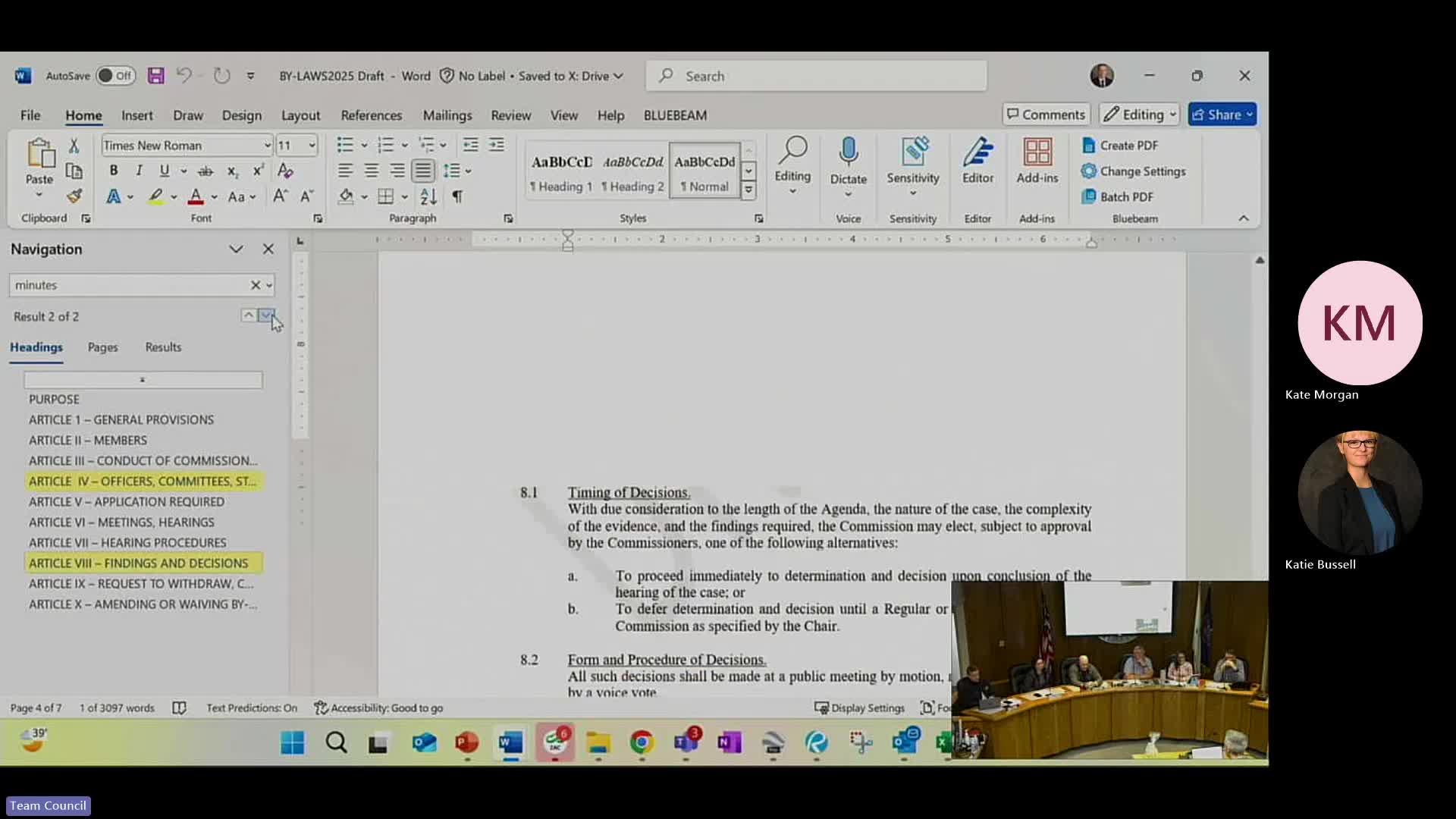Planning commission approves bylaw amendments to make decisions final at vote and adds purpose language; forwards changes to City Council
Get AI-powered insights, summaries, and transcripts
Subscribe
Summary
Commissioners agreed to modify the bylaws so decisions are final when taken at the meeting rather than when minutes are approved, and they approved adding language summarizing the commission's duties; the changes will be sent to the City Council for final approval.
The Lehi City Planning Commission voted to approve amendments to its bylaws that change when a commission decision becomes final and to add a short statement of the commission’s duties to the bylaws. The commission then forwarded the amended bylaws to the Lehi City Council for review where municipal approval is required.
Commissioners discussed a recent appeal in which a hearing officer found an appeal outside the typical 30-day window because the commission’s minutes had not yet been approved. Under the current bylaws, decisions are final when the minutes from the meeting at which the decision was made are approved; staff and several commissioners said that wording can create uneven appeal windows depending on how quickly minutes are finalized. A staff presenter summarized the procedural problem and said the commission could change the bylaw language so that a decision is final when the motion is made and the vote is taken at the meeting.
After discussion, a commissioner moved to accept the bylaws with a modification to section 8.2 to make commission decisions final at the time the vote is taken rather than upon approval of the minutes. The motion was seconded and approved by voice vote; no opposition was recorded in the session transcript. Commissioners also moved to add a brief statement of the planning commission’s duties (drawn from city code) into the bylaws’ purpose section; that amendment passed by voice vote and was included in the package sent to City Council.
Commission staff and commissioners discussed alternatives including tying finality to publication of the meeting recording, extending the appeal window, or leaving the current language. The commission chose the approach of making decisions final at the meeting and forwarding the amendment to the City Council; the City Council must approve bylaw changes before they take effect.
The changes were framed as a technical clarification intended to align the bylaws with modern record practices (video recordings and prompt posting) and to eliminate unintended differences in appeal timing between cases. Staff noted that applicants retain other procedural options, such as filing a new application or requesting rehearing, and that the commission still retains authority to rehear matters under specific conditions.
